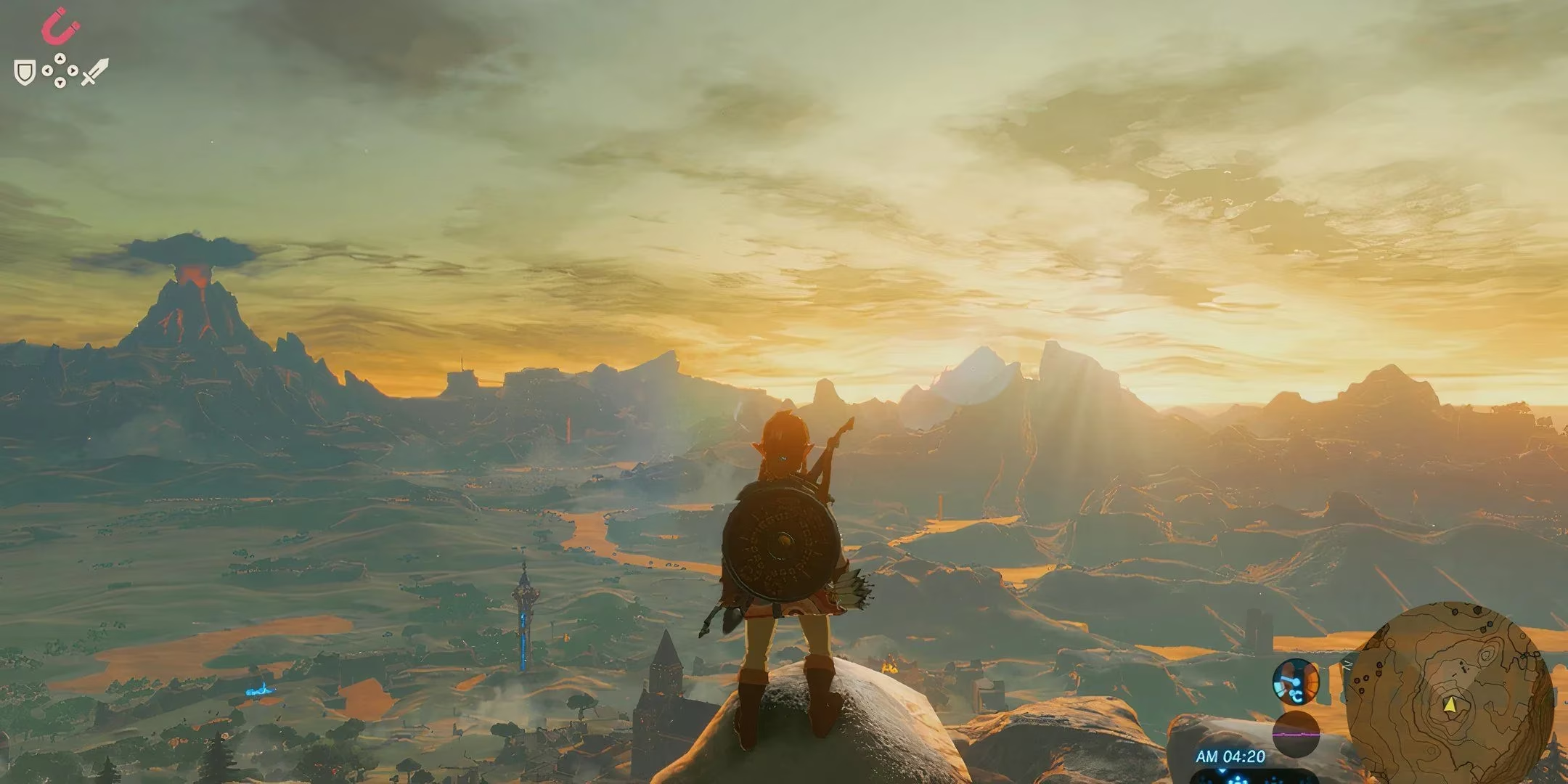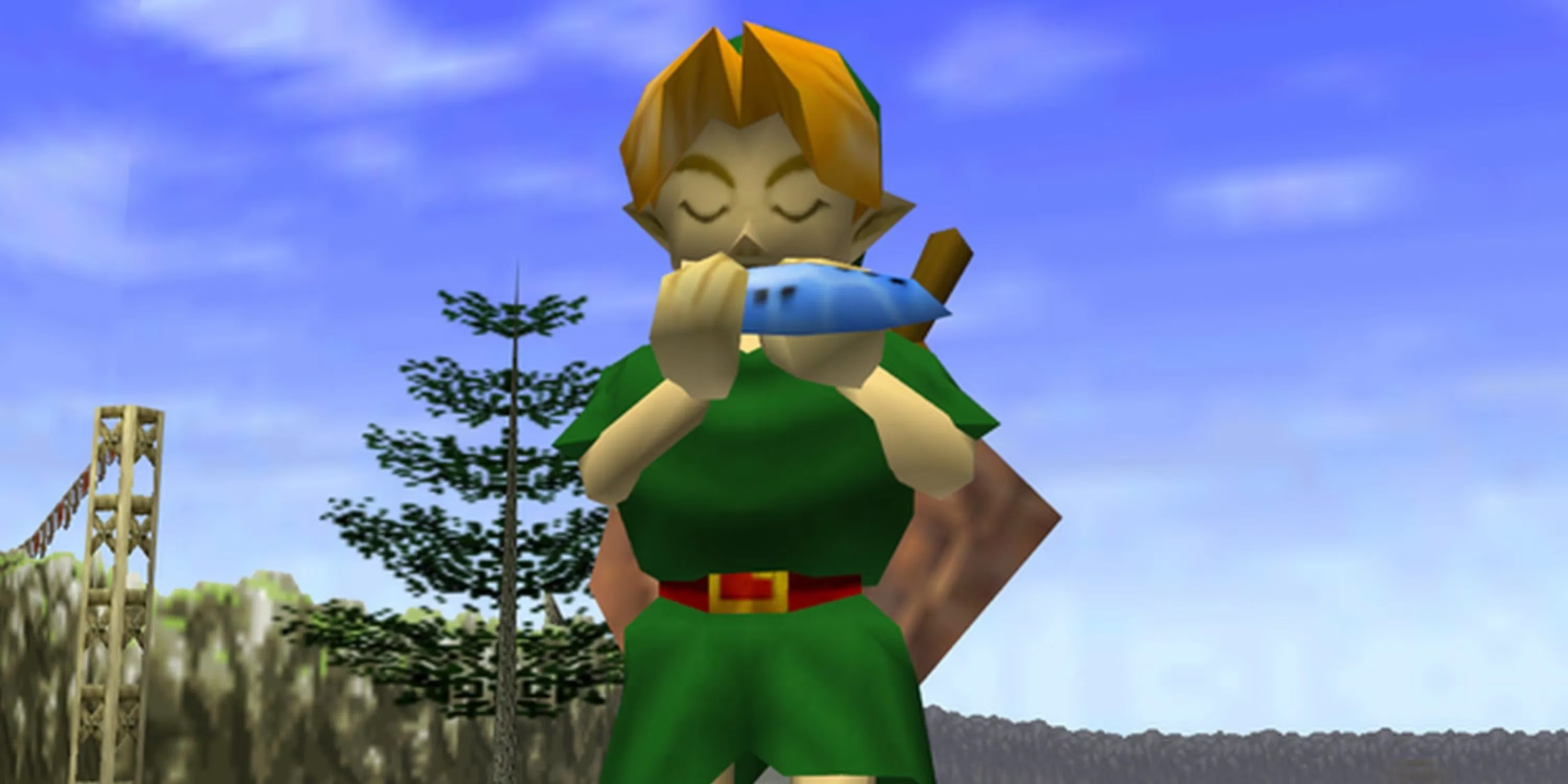The Silent Hero: Why I Miss Link's Music in Modern Zelda Games
Explore the nostalgic yearning for musical instruments in Zelda, contrasting iconic melodies with the silent evolution of Breath of the Wild and Tears of the Kingdom.
As a longtime fan of The Legend of Zelda series, I've had a wild ride adapting to the newer entries like Breath of the Wild and Tears of the Kingdom. Honestly, when I first played Breath of the Wild back in 2017, I was blown away by the open world but couldn't shake this nagging feeling that something vital was missing—like an old friend had suddenly stopped talking. 🎮 Over time, I grew to love the freedom and innovation, especially with Tears of the Kingdom in 2023, where building crazy contraptions felt revolutionary. But even now in 2025, as I replay these masterpieces, there's one gap that still aches: the absence of musical instruments that Link used to wield. Back in the day, games like Ocarina of Time made me feel like a true hero, not just through epic quests but through the melodies I created. It's baffling how Nintendo nailed so much yet left this cherished tradition behind. 😢 Sure, I get that the series evolved, but diving into Hyrule today often feels eerily quiet, like walking through a museum where the exhibits are stunning but the soulful soundtrack has been muted. This isn't just nostalgia—it's about how music once tied everything together, making me an active participant in the magic rather than a passive observer.
The Shift to Silence in Breath of the Wild and Tears of the Kingdom
Let's talk about why these modern games feel so different. Breath of the Wild and its sequel, Tears of the Kingdom, deliberately dialed down the music to match the desolate beauty of post-calamity Hyrule. Instead of grand orchestral themes, we get subtle piano tunes that drift in and out, like whispers on the wind.  This screenshot captures the essence—vast landscapes with minimal sound, which is artistically brilliant but emotionally distant. I remember exploring the ruins of Hyrule Castle in Tears of the Kingdom; the visuals were breathtaking, but the sparse score left me feeling isolated, not immersed. Compare that to older titles where every dungeon or village had its own leitmotif, humming in my head long after I turned off the console. Nintendo's choice makes sense contextually—it emphasizes exploration and realism—but as a player, it strips away a layer of wonder. I mean, who doesn't miss stumbling upon a hidden grove and whipping out an ocarina to summon rain or teleport? That interactivity made the world feel alive and responsive, whereas now, I'm just tapping a map for fast travel. It's efficient, sure, but soulless.
This screenshot captures the essence—vast landscapes with minimal sound, which is artistically brilliant but emotionally distant. I remember exploring the ruins of Hyrule Castle in Tears of the Kingdom; the visuals were breathtaking, but the sparse score left me feeling isolated, not immersed. Compare that to older titles where every dungeon or village had its own leitmotif, humming in my head long after I turned off the console. Nintendo's choice makes sense contextually—it emphasizes exploration and realism—but as a player, it strips away a layer of wonder. I mean, who doesn't miss stumbling upon a hidden grove and whipping out an ocarina to summon rain or teleport? That interactivity made the world feel alive and responsive, whereas now, I'm just tapping a map for fast travel. It's efficient, sure, but soulless.
The Golden Age: Music as Magic in Classic Zelda Games
Rewind to the classics, and oh boy, was music everything! In Ocarina of Time, Link wasn't just a hero; he was a musician wielding melodies that shaped the world. Learning songs like Zelda's Lullaby or the Song of Storms wasn't just a side quest—it was central to the adventure.  This image of Young Link playing the ocarina still gives me chills; it represents a time when music was functional and magical. Here's why it worked so well:
This image of Young Link playing the ocarina still gives me chills; it represents a time when music was functional and magical. Here's why it worked so well:
-
Functional Power: Songs had real-game impacts. For instance:
-
Epona's Song summoned your horse instantly—no need for tedious whistles.
-
The Minuet of Forest warped you to sacred groves, solving puzzles seamlessly.
-
In Wind Waker, the Wind's Requiem controlled sailing, turning tedious journeys into breezy fun.
-
Emotional Connection: Performing these tunes created bonds with characters and lore. I felt like a guardian of Hyrule's traditions, passing down songs that healed the sick or calmed restless spirits. The magic wasn't just in the notes; it was in how it made me part of the story. 😊
And let's not forget the sheer memorability! Even today, I can hum the Gerudo Valley theme from memory, but ask me about Breath of the Wild's piano motifs, and I draw a blank. The old system fostered a sense of ownership—I wasn't just playing a game; I was composing its soundtrack. Tables below show a quick comparison of how music roles differ:
| Aspect | Classic Zelda (e.g., Ocarina) | Modern Zelda (e.g., Tears) |
|---|---|---|
| Player Interaction | Active participation with instruments | Passive listening to background score |
| Functional Use | Fast travel, puzzle-solving, magic effects | Minimal; relies on UI like map selections |
| Memorability | High (songs stick in your mind) | Low (ambient tunes fade quickly) |
| Emotional Impact | Deep, personal connection | Superficial, atmospheric only |
This isn't nostalgia talking—it's a tangible loss. Games like Tunic or Death's Door try to fill the void with retro vibes, but they don't capture Zelda's unique blend of music and mythology. In Majora's Mask, masks gave Link instruments that altered time or summoned allies, making every note feel urgent and powerful. Without that, Tears of the Kingdom's Sky Islands, while visually stunning, lack that rhythmic heartbeat that once drove the series forward.
Why the Silence Stings: Personal Reflections on Modern Scores
Playing through Tears of the Kingdom in 2025, I've come to appreciate its innovations—building Zonai devices is insanely fun!—but the music remains a sore spot. I recall battling a Guardian in Breath of the Wild; the sudden piano sting was effective for tension, but it didn't linger like the ocarina's melodies. It's as if the score is intentionally understated to avoid distraction, but that backfires for players like me who thrive on emotional hooks. 🎵 When I helped rebuild Lurelin Village, I wanted to celebrate with a triumphant fanfare I created, not just hear a soft piano fade. This disconnect makes the experience feel less personal. Nintendo might argue that modern gaming prioritizes immersion over gimmicks, yet removing instruments alienates fans who grew up with that interactivity. I mean, think about it: in Wind Waker, conducting the wind with a baton made sailing adventures feel epic and communal. Now, in Tears of the Kingdom, I soar on dragons with gorgeous views, but the silence robs it of that collective joy—like attending a concert where no one sings along.
Looking ahead, what if Nintendo brought back musical elements? 🤔 They could integrate them into the open-world format without reverting to old formulas. Imagine Link crafting a new instrument from Zonai parts or using Sheikah tech to compose digital tunes that affect weather or wildlife. It wouldn't just be nostalgic—it could innovate, blending tradition with the series' newfound freedom. After all, Zelda has always been about balance: light and shadow, courage and wisdom, silence and song. Perhaps it's time for Link to find his voice again, not through loud fanfare but through melodies that resonate in our hearts and Hyrule's soul. What do you think—could music make the next adventure unforgettable, or is the quiet era here to stay?